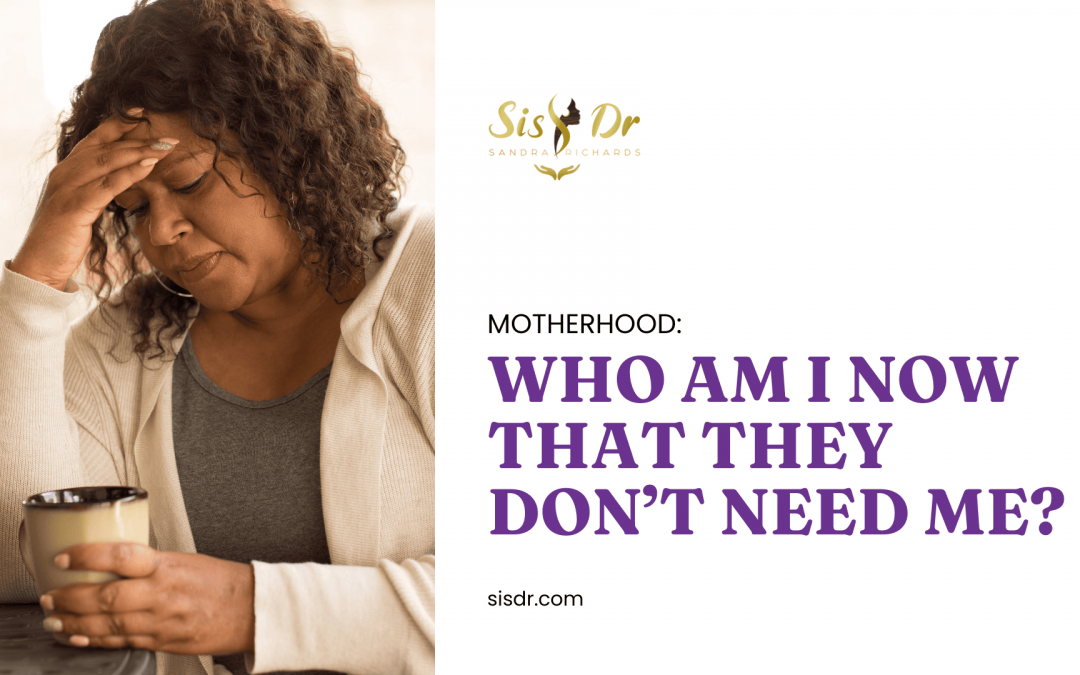Reclaiming identity, purpose, and selfhood beyond motherhood
What happens when you don’t know who you are outside of motherhood? There is something no one tells you when you’re raising children: one day, they won’t need you in the same way.
For many women, motherhood becomes an all-encompassing role—one that defines your routines, your relationships, even your sense of worth. It is a role you may enter with love, intention, and pride. But somewhere along the journey, particularly for women of Caribbean and African descent, it can become a silent surrender of self.
Years, sometimes decades, are spent caring for others—raising children, supporting partners, tending to elders, building homes. Then one day, the role shifts. The children grow up. The home becomes quieter. And a confronting question begins to surface:
Who am I now?
This blog explores the emotional terrain that follows the transition out of hands-on mothering. It invites women to reflect on identity, cultural expectations, and how to begin the sacred work of coming back to themselves.
The Culture of Care: When Doing Becomes Your Default
Many of us were raised in homes where service to others was praised, expected, and ingrained from early on. In traditional Caribbean and African households, girls are often taught to be helpful, dependable, and emotionally reserved—learning that their value is measured by what they do for others.
While these teachings may have been passed down with love or necessity, they rarely left room for women to consider themselves outside of roles.
For those who became mothers, this giving intensified. The responsibilities grew, but the expectations stayed the same. You give. You carry. You stretch. And eventually, for many women, you forget how to exist outside of someone needing you.
The Unseen Grief of No Longer Being Needed
Once children begin to find their independence, many women find themselves disoriented. The pace of life slows. The daily demands are reduced. What once structured your time, energy, and even purpose has shifted—and with it comes a void.
This void can trigger a range of emotions:
-
Guilt for wanting something more
-
Sadness or grief over time lost or identity diluted
-
Anxiety around ageing or being “too late” to start again
-
Confusion about what joy, rest, or pleasure even look like for you
These are not signs of failure. They are symptoms of a life lived through service, without intentional space for selfhood.
You Are Not Too Late
Contrary to what some may feel, this stage of life is not a leftover. It is not what’s “left” once others no longer need you. It is a sacred return—an opportunity to redefine, reclaim, and reimagine who you are as a whole woman.
This may include:
-
Returning to passions you once abandoned
-
Exploring new hobbies or creative outlet
-
Prioritising your physical and emotional health
-
Building relationships that nourish you
-
Starting therapy or cultural healing work
-
Simply resting without guilt
Each of these acts, no matter how small, represents a powerful step in re-rooting your identity in self rather than sacrifice.
Building New Bonds with Adult Children
One of the most beautiful outcomes of this transition is the opportunity to shift from “parenting” to “relating.” As your children become adults, the dynamic evolves. You’re no longer just the provider or protector. You can become a guide, a witness, a safe place.
But this can only happen if you have also cultivated your own space—emotionally, mentally, and spiritually. Your children do not need you to disappear for them to succeed. Nor should they carry the weight of being your only source of purpose.
Rediscovering yourself is not a betrayal of motherhood. It is a deepening of it. You lead by example, showing that womanhood is expansive, layered, and lifelong for your children or grandchildren.
Reconnection Is a Practice
If you’re unsure how to start reconnecting with yourself, here are a few reflective prompts I offer my clients:
- What did I enjoy before the world expected me to perform?
- What spaces or people help me feel most like myself?
- What have I been postponing that quietly calls to me?
These questions are not about immediate answers but about curiosity—a willingness to explore the parts of yourself you may have neglected.
Final Reflections
To every woman reading this who has spent years showing up for others: now is the time to show up for yourself. This next chapter is not a consolation prize. It is your homecoming.
You are allowed to grow, to shift, to grieve what was, and to celebrate what can still be. And if you’re not sure how to find your way back, know this:
Healing, identity work, and emotional repair are possible at every stage of life.
Sometimes, the rediscovery begins with a single question. Sometimes, it begins with rest. And sometimes, it begins with someone simply reminding you: You were always more than what you gave.
About SisDr (Dr. Sandra Richards)
SisDr is a Cultural and Wellbeing Practitioner, Counsellor, and Educator with over 30 years’ experience supporting women, men, families, and organisations. Her work blends psychological knowledge with cultural guidance, empowering individuals on journeys of emotional healing, identity reclamation, and transformational change.

